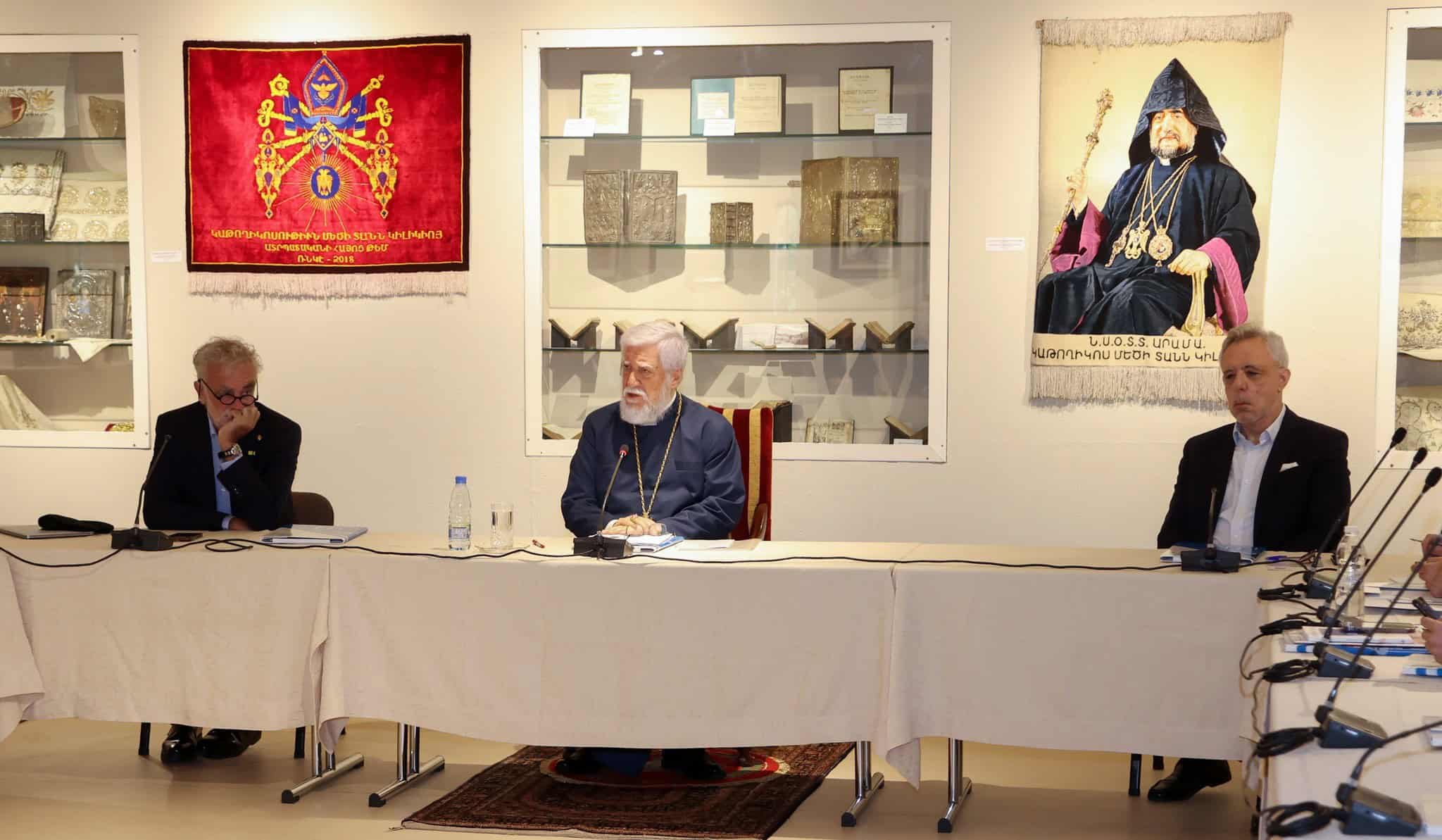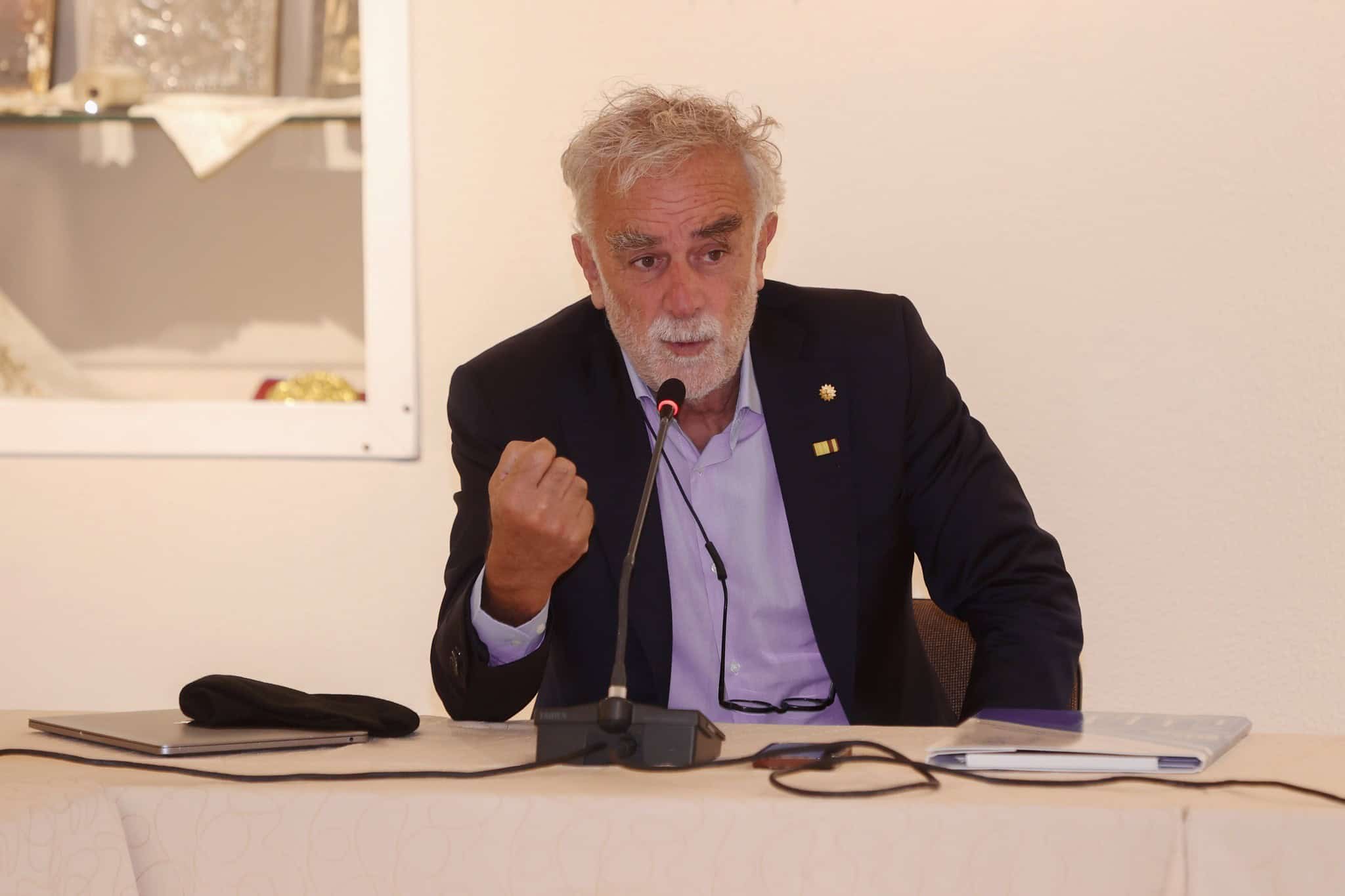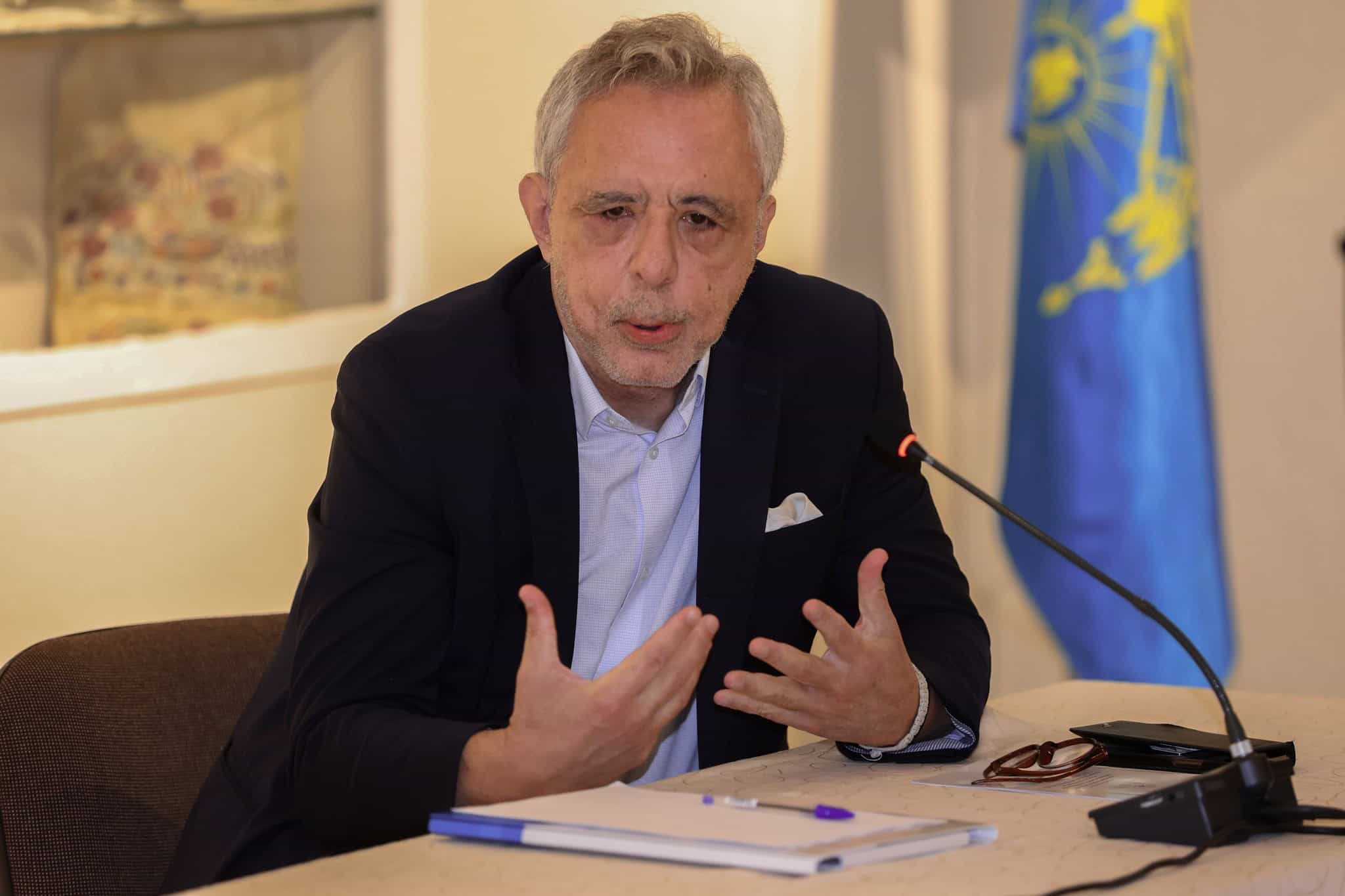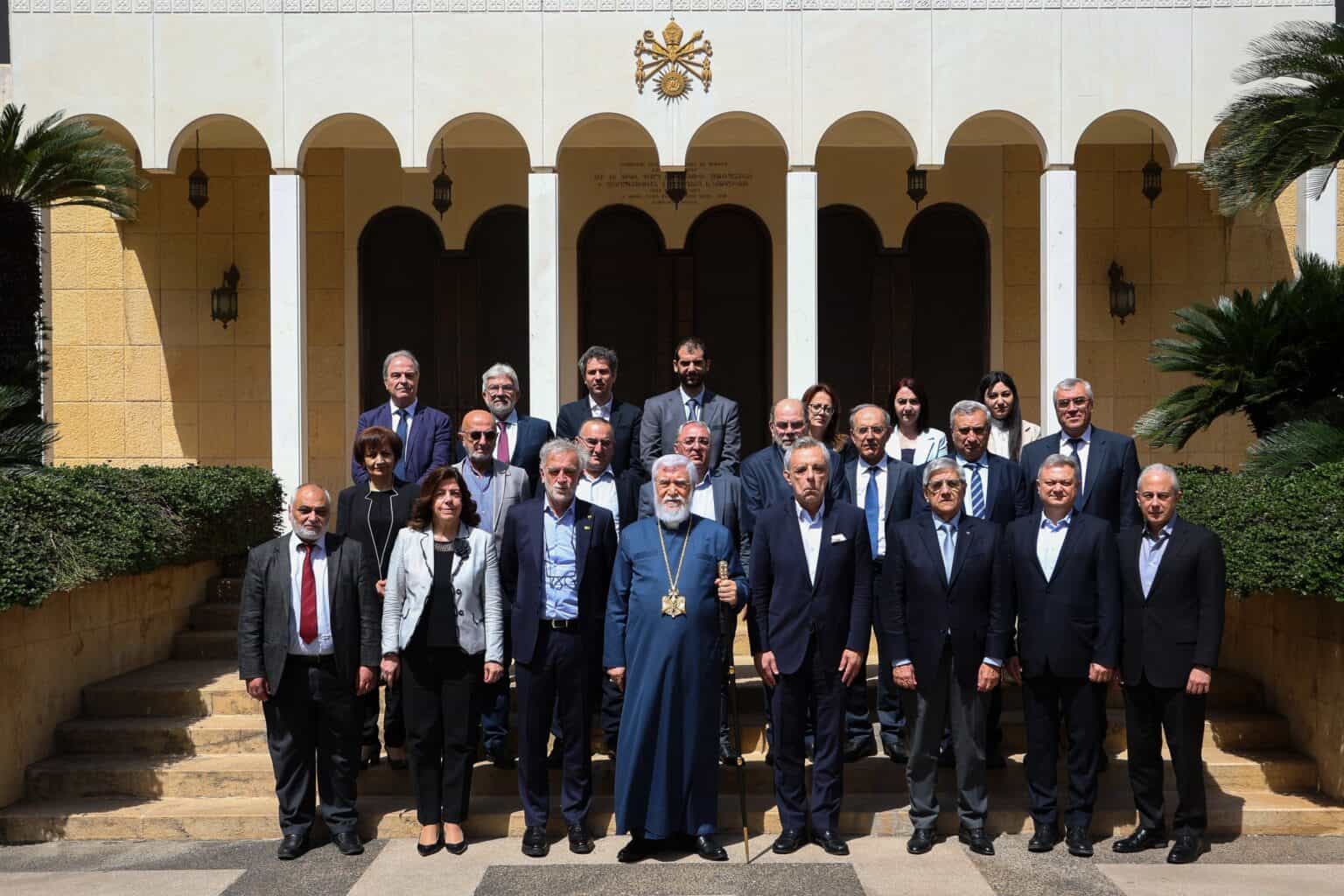 A conference organized by the Cilicia Analytical Platform convened on Saturday, April 20, in Antelias to explore responses to address Azerbaijan’s genocidal policies, presided over by His Holiness Catholicos Aram I and the participation of former prosecutor of the International Criminal Court Luis Moreno Ocampo, former Foreign Minister of Armenia Vartan Oskanian, as well as historians, human rights experts and political scientists from Armenia, Artsakh and the Armenian Diaspora.
A conference organized by the Cilicia Analytical Platform convened on Saturday, April 20, in Antelias to explore responses to address Azerbaijan’s genocidal policies, presided over by His Holiness Catholicos Aram I and the participation of former prosecutor of the International Criminal Court Luis Moreno Ocampo, former Foreign Minister of Armenia Vartan Oskanian, as well as historians, human rights experts and political scientists from Armenia, Artsakh and the Armenian Diaspora.
“Justice is Grace given by God and the vocation of the Church,” said the Catholicos in his opening remarks.

The purpose of the meeting was to study all possibilities that lead to the restoration of the rights of the Armenian population of Artsakh, because we have not turned the page, His Holiness said.
He then referred to the two reports on the situation in Artsakh prepared by Mr. Moreno Ocampo and wondered about the reasons why the international community remained indifferent the to the Genocide in Artsakh. The Catholicos also asked about the chances of Azerbaijani dictator Ilham Aliyev being prosecuted for his genocidal acts, as well as about the rights of Armenians to return to their homeland, whom Aliyev invites back as “citizens of Azerbaijan.”
These questions pertained to the “struggle for survival issues,” with legal and political implications, he said. His Holiness then invited Mr. Moreno Ocampo to address the audience.
Mr. Moreno Ocampo delivered a lecture on Azerbaijan’s genocide and the right of the Armenian population of Artsakh to return to their homeland.
He stressed the importance and the need to insist on genocide, especially in view of the latest developments. If that case is not made, he said, compensation and the right to return will become impossible.
According to Mr. Moreno Ocampo, global indifference stemmed from the will to elude responsibility. He recommended putting pressure on leaders who cooperate with Aliyev. He also explained that labeling Aliyev’s actions as genocidal would require a special trial.
Following Mr. Moreno Ocampo’s lecture, Mr. Oskanian took the floor. He mentioned that demands of justice for the Genocide was central in Armenians’ struggle. Yet, in face of renewed challenges, he expressed his concern that the zeal in the fight for recognition and compensation might diminish as time passed.

Mr. Oskanian expressed appreciation for Mr. Moreno Ocampo’s contributions to the issue of the recognition of the Genocide and compensation with appreciation. He then asked: What would be our correct legal and political approach, considering the important role of the government of Armenia on this issue?
An animated discussion followed the lectures. Participants discussed the political reasons behind the question of Artsakh and how to present the case to the ICC, among other topics.
During the two-day conference, other topics discussed included Azerbaijan’s historiographical distortions about its neighbors, presented by Ashot Melkonian. Gevorg Stepanian discussed the Greater Azerbaijan and pan-Turkic project. Gayané Hovhannisian presented Azerbaijan’s anti-Armenian demographic policies and the ethnic cleansing it pursued.
Ruben Safrastian analyzed the 44-days war and the post-war geopolitics, which he called a new version of Ottomanism and pan-Turanism: the forced eviction of Armenians from Artsakh and its incorporation into Azerbaijan. Garen Khanlarian discussed the importance of Syunik for preventing the pan-Turkic expansion, including the Turkish-Azerbaijani genocidal project, the so-called “Zangezur Corridor,” and the position of Iran. Aharon Shekherdemian introduced the concept of Neo-Ottomanism as the new force of the policy in the region.
Armen Maroukian analyzed the impact of Azerbaijani media reporting and its public perception during the invasion of Artsakh. He identified new challenges in media, suggesting that Armenia and the Diaspora adopt new strategies. In her talk, Nora Bayrakdarian noted according to International Law, both state and non-state parties are eligible to present their case to the ICC. She mentioned the initiative of the Catholicosate of Cilicia in 2015 to demand the return of the properties of the Catholicosate of Sis, which already set a precedent.
Iskouhi Avanesian described Azerbaijan’s genocidal acts against the peaceful population in Artsakh, the breach of human rights, and its war crimes. Vahram Balayan spoke of the September 2023 blockade by Azerbaijan, its oil and strategic position and impunity. Finally, Yeghia Tashjian, presented the situation in the Southern Caucasus since 2020, within the framework of political and economic globalization, and its future challenges.

